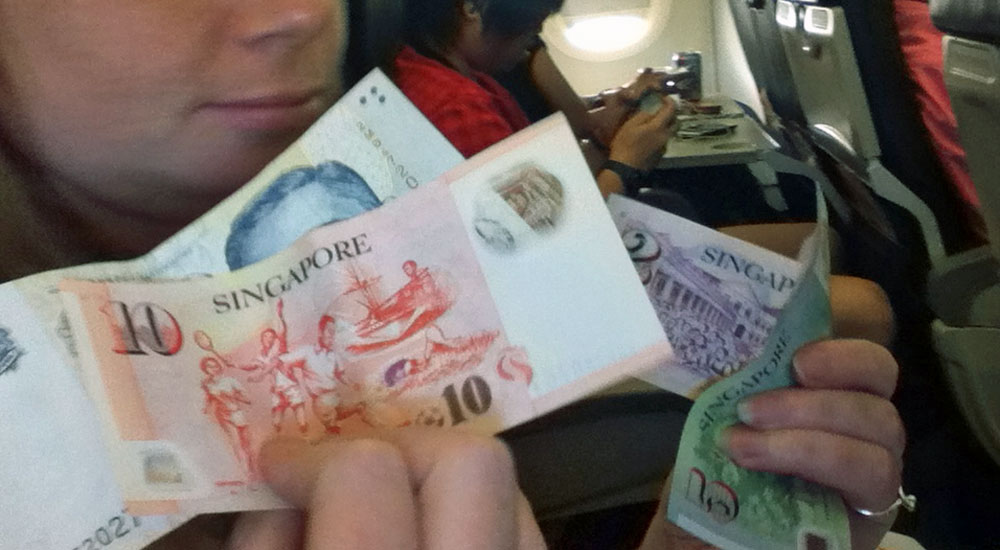Raising taxes is a politically challenging thing to do in Singapore.
But that does not mean it cannot be done.
The onus will be on the government to be even more transparent on how the revenue collected is spent.
Raising taxes has been in the news as Prime Minister Lee Hsien Loong hinted at the Nov. 19, 2017 People’s Action Party (PAP) convention that taxes will inevitably be raised to fund future expenditure.
Here are all the ways the Singapore government can raise taxes to build up its coffers.
1. Increasing GST
Raising Goods and Services Tax appears to be the likeliest method -- although it might not happen anytime soon.
But a hike in GST could take place in the next five years.
Singapore's 7 percent GST is among the lowest regionally.
Vietnam, South Korea and Indonesia is at 10 percent and Japan is at 8 percent.
The last time GST was raised was 10 years ago.
A 3 percent GST was first introduced in Singapore on April 1, 1994.
In 2003, it was increased to 4 percent and then 5 percent in 2004.
The last increase was in 2007 to 7 percent.
GST is a significant source of tax revenue. For every percentage point increase in GST, tax revenues could go up by about S$1.5 billion.
In the 2017 financial year, GST collections are estimated at S$11.25 billion -- roughly 16 percent of the government’s estimated operating revenue of S$69.45 billion.
Lastly, GST taxes consumption. In absolute terms, the more affluent will pay more GST by virtue of buying more things.
[related_story]
2. Tax online shopping
For historical context: Physical goods of less than S$400 in value are exempted from GST as this tax was introduced in 1994 when online purchasing power was still weak.
With greater digitsation of services and more advanced analytics tracking ability, the imposition of GST to cross-border digital transactions is becoming a reality -- possibly for items of smaller dollar value.
The administrative costs of tracking online purchases can be justified by the significant taxes derived from the sheer volume of transactions that take place these days.
The government could require large online retailers to collect GST from Singapore residents on its behalf.
Or the authorities might even work with delivery firms to track purchases from smaller online retailers.
This form of indirect tax makes Singapore's overall tax system more progressive as it targets consumption.
3. Increasing income tax
Tax bands can be widened such that more people fall into the higher tax brackets.
Personal taxes for higher-income earners would likely go up. This is to fine-tune the income tax system.
But the well-heeled must still find Singapore's tax rate affordable as the well-to-do bring economic value with them.
4. Corporate tax
Corporate taxes can also be tweaked but are unlikely to be raised, since that could hurt competitiveness.
Other economies are lowering corporate tax rates to attract investment.
Singapore's corporate tax is currently 17 percent.
Raising it will send a negative signal to investors.
5. Lowering tax reliefs
Lowering tax reliefs will see taxpayers pay more, but is also unlikely.
Moreover, it will only have a “limited impact” on lifting the pressure off spending, besides being unpopular.
Taxpayers will see it as a clawing back of benefits.
On the other hand, for example, increasing taxes, such as GST, while introducing relief measures, such as vouchers and rebates, would appear to have a greater cushioning effect.
6. Sin tax
Raising “sin tax” is to generate revenue from taxes levied on tobacco and alcohol.
This serves more than one purpose as it also deters people from consuming non-essentials that could potentially extract a toll on consumers (in the form of poorer health in the future).
Other products, such as sugar, seen to be detrimental to health, can also be taxed in the future.
This could be accompanied by a reduce in taxes for basic necessities.
7. Environment tax
The water tariff hike has already kicked in earlier this year. There will be an upcoming carbon tax to be imposed from 2019.
More environmental taxes, such as a plastic bag tax, can be introduced, as they are aimed at changing behaviour while generating revenue.
If you like what you read, follow us on Facebook, Instagram, Twitter and Telegram to get the latest updates.

